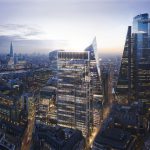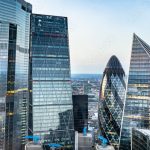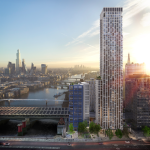The ongoing dialogue surrounding the COVID-19 era’s influence on our work habits is a common conversation in our industry. Yet amidst nostalgia for the “good ol’ days,” we might overlook valuable insights from the next generation who started their careers post-pandemic. When we only focus on what work used to be like, we miss out on a deeper understanding of the next generation’s unique perspective.
While the convenience of putting a clothes wash on between Teams calls brings joy to some, our innate sociability has encouraged some of us to prioritise in-person meetings, which focus and encourage collaboration and the free flow of ideas beyond a screen. For this reason, I expect the office will need to work harder. It needs to be somewhere you want to be, to meet and collaborate with colleagues, build friendships and be within easy access of exciting things to do after 5pm. A cultural offering is key, with this being the main activity unavailable from home – an immersive dining experience does not compare to a Zoom quiz from your kitchen table.
So, looking forward, a reimagining of the traditional office in central London is inevitable. But what does it look like?
Market predictions show that flexible work arrangements will likely persist, empowering employees to balance professional and personal lives without sacrificing productivity. The conventional notion of occupying the same desk daily is quickly being replaced by designated quiet zones, collaborative areas and coffee bars, to accommodate diverse work styles or specific tasks.
Sustainability remains a cornerstone in office design and construction. Green initiatives, such as energy-efficient heating and lighting, sustainable materials and green spaces that promote mental health and well-being are high on the agenda. So too is the importance of workplaces being inclusive and catering to the diverse needs of employees from different backgrounds and abilities. It is essential we design for all, creating environments that foster a sense of belonging for everyone.
Technology’s role in shaping the office of the future cannot be overstated. The NextGen Committees’ latest research report, AI and the Built Environment, has found that augmented reality, virtual reality and artificial intelligence innovations will facilitate immersive collaboration, streamlining idea generation and decision-making. Technological integration presents an exciting opportunity for London’s next generation of office workers. As eager adopters of new technologies, they will inject fresh perspectives to drive innovation in the workplace.
In conclusion, the perspective of young people is essential in designing the future office in central London and beyond. By embracing the next generation’s creativity, technological savvy and foresight into future trends, we can encourage effective discussions to ensure we create workplaces that are not only functional and efficient but also inspiring, inclusive and adaptable to the needs of tomorrow’s workforce.
We’re excited to share that the NextGen committees recently collaborated on a research project exploring AI and the Built Environment. Stay tuned for the launch of our findings in May!


